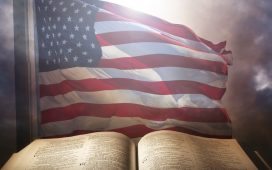Candidates and parties campaigning in the general election must commit to tackling racism and Islamophobia to win the support of Muslim voters, according to the Muslim Council of Britain.
A manifesto setting out how parties’ policies could affect Muslims has been published by the MCB after consulting its affiliates and communities across the UK.
According to the document, British Muslim Perspectives at the 2019 General Election, there are 26 constituencies with a Muslim population of at least 20% of the total, and two – Birmingham Hodge Hill and Bradford West – with estimated Muslim electorates of over 50%.
Muslim voters could influence the outcome in 31 marginal seats, the MCB said last week. On Friday, it organised its first ever voter registration drive in mosques and community organisations.
The new report calls on British Muslims to ensure “every voice is heard in this election”.
There have been trials of voter ID in local elections and the Conservatives have stated that they want to bring in some form of UK-wide ID requirement for voting in the future, but for this election there is no change to the current system.
You do not need to show ID to vote in England, Scotland and Wales in a general election. You don’t even need to bring your polling card. You just need to tell polling staff your name and address. They will then cross your name off the list and give you a ballot paper.
If you’re voting in Northern Ireland, you must show photo ID.
Only the following forms of ID will be accepted at polling stations in Northern Ireland:
- A UK, Irish or EEA driving licence (photographic part) (provisional accepted).
- A UK or Irish passport.
- An Electoral Identity Card.
- A Translink Senior SmartPass.
- A Translink 60+ SmartPass.
- A Translink War Disabled SmartPass.
- A Translink Blind Person’s SmartPass.
Your photographic identification does not need to be current, so even if it is out of date you can still use it to vote. The presiding officer will have the final say over whether or not the photograph matches that of the person intending to vote. Find out more about voting in Northern Ireland.
Martin Belam
It says: “In many respects, the issues that concern Muslims will be no different to those facing fellow Britons. In constituencies up and down the country, British Muslims will be just as impacted by Brexit, our health service and the state of the economy as anyone else.”
But, it adds, “there are serious concerns of the resurgence of the far right, together with growing Islamophobia from the governing party to sections of the media, which have shaped social attitudes about Muslims”.
The report identifies 10 key pledges it wants to obtain from political parties, topped by action to tackle racism and Islamophobia. Next is religious liberty – a demand that parties defend the right of Muslims and others to express their faith through religious clothing and “reasonable accommodation of religious observance”.
Other key issues concern engagement with Muslim communities, safety at places of worship, refugees, discrimination in the criminal justice system, equality in education, increased participation of minorities and women in public life, effective health and elderly care services, and an ethical foreign policy.
In each case, the report makes recommendations for specific actions needed “to unlock the full potential of Muslim communities to play their full part in the success of our nation”.
Muslims make up 4.8% of the overall UK population, although 8.1% of all school-age children are Muslim, according to the report. There are an estimated 1,700 mosques across the country.





